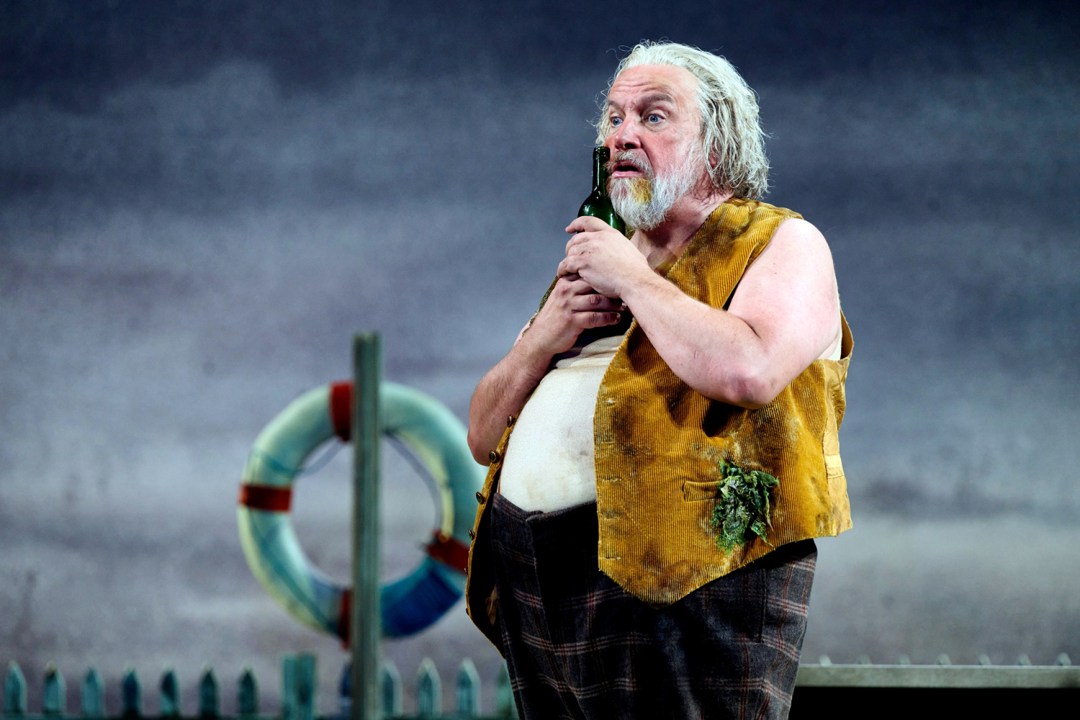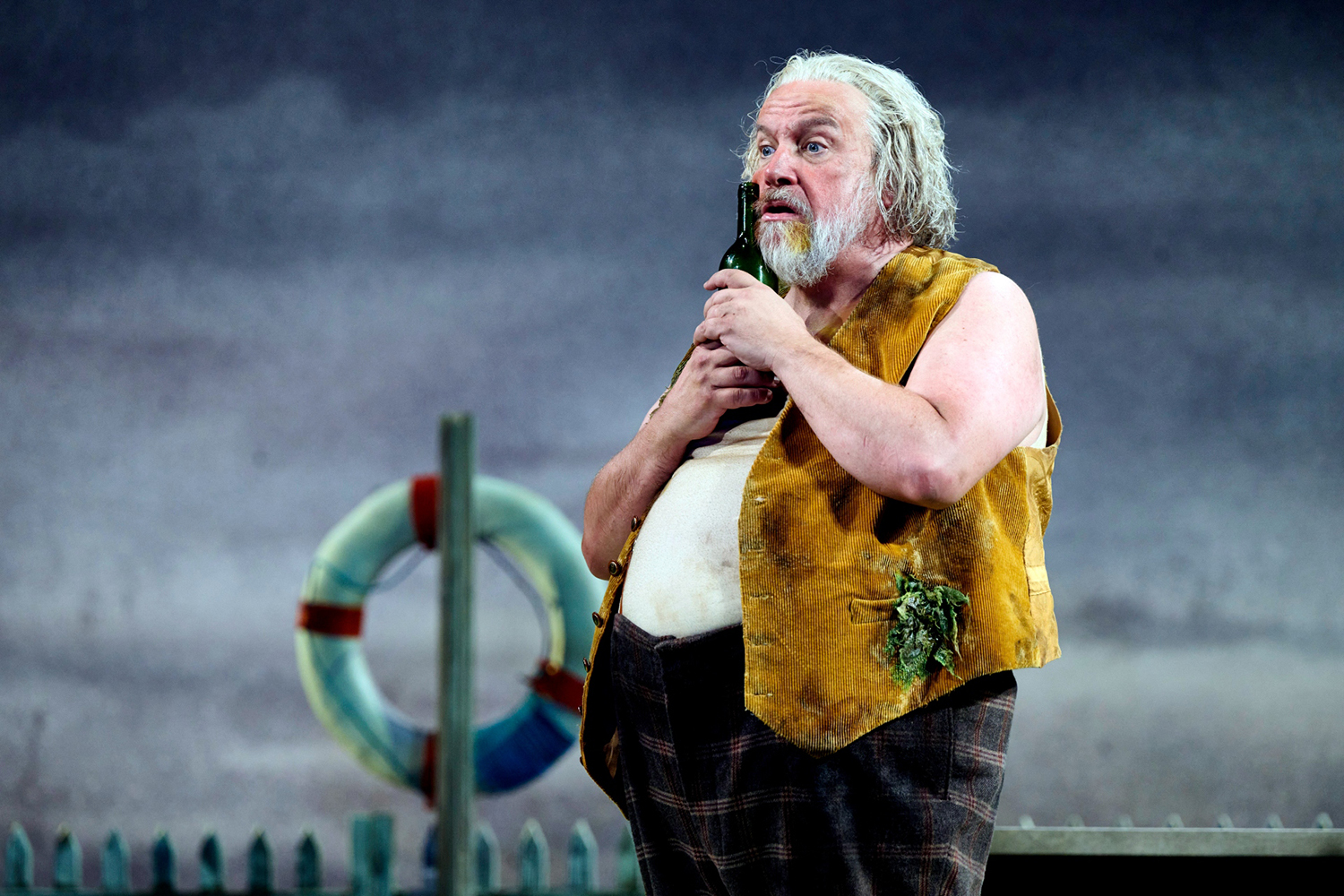Opera North has launched a ‘Green Season’, which means (among other things) that the sets and costumes for its new Falstaff are recycled. On one level, that’s nothing new: this eternally underfunded company has been performing miracles of sustainability for years now, and there’s usually at least one production each season that looks like it’s been cobbled together from the lumber room. A few seasons back, when ON rebooted their ‘little greats’ season of one-act operas, they mixed ’n’ matched sets between wildly different operas, with cheerful abandon.
Sir John lives in a caravan and quaffs sack in his underpants – shades of Jez Butterworth’s Rooster Byron
Still, it’s a perfectly laudable aim, even if it requires some Olympic-level mental gymnastics regarding the content of the operas themselves. The director, Olivia Fuchs, is more than up for the challenge. ‘I think it could be true that Falstaff is giving us a lesson in how to live within limited means and have fun,’ she observes in the programme book. Meanwhile on stage, Falstaff promptly defaults on a bill for six chickens, 30 bottles of sherry, three turkeys, two pheasants and an anchovy. Fair play: if that’s a viable strategy for reaching Net Zero, it’s one that we can all get behind.
Fuchs is an excellent director – pretty much the best in the UK, these days, when it comes to Janacek – and although she talks about setting the action in ‘the aspirational world of 1980s middle-England’ there isn’t a mean bone in this Falstaff. English archetypes abound. Sir John (Henry Waddington) lives in a caravan and quaffs sack in his underpants – shades of Jez Butterworth’s Rooster Byron. You just know that Richard Burkhard’s slick-haired, tight-suited Ford made his pile selling second-hand Jaguars. The Merry Wives are first seen on a tennis court where Fenton (Egor Zhuravskii) is the young, sexily bedraggled coach and Nannetta (Isabelle Peters) is an all-singing Joan Hunter Dunn.
Under Fuchs’s direction these two come across as a wholly believable pair of infatuated teens, equal parts awkwardness and innocent lust, and Zhuravskii’s serenade in Act Three is exactly the idyllic aside that it should be (the librettist Arrigo Boito compared the Fenton/Nannetta romance to ‘sugar sprinkled on a tart’).









Comments
Join the debate for just £1 a month
Be part of the conversation with other Spectator readers by getting your first three months for £3.
UNLOCK ACCESS Just £1 a monthAlready a subscriber? Log in